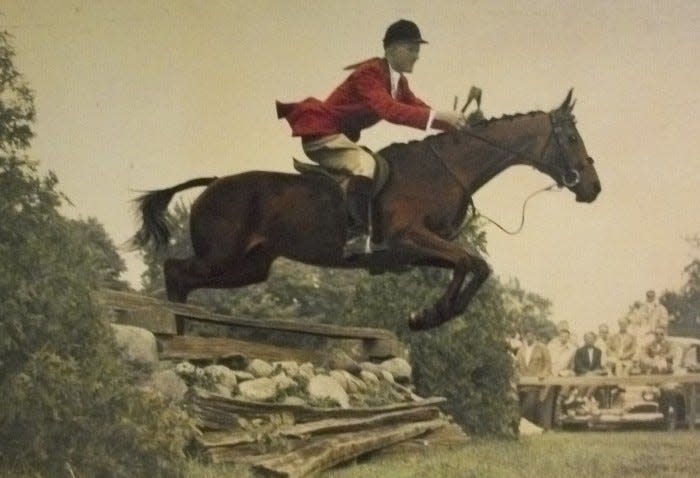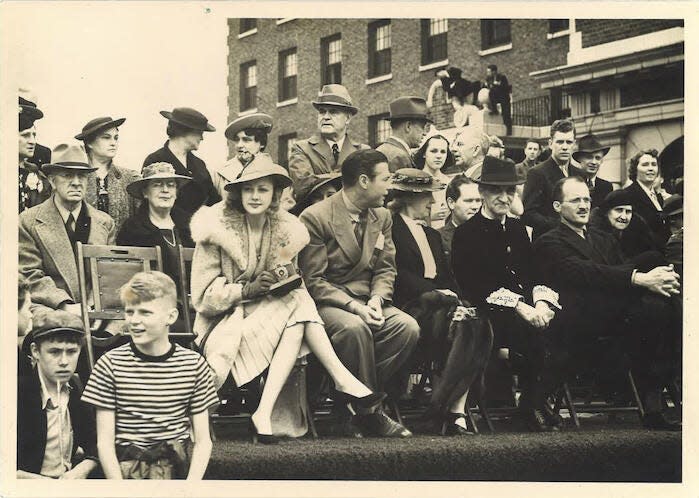Steve VanderVeen: P.T. Cheff and the downfall of Holland Furnace Co.
For August Landwehr, 1928 marked a significant period of decline — including the rise of P.T. Cheff and the fall of Holland Furnace Company.

In 1933, while August Landwehr was suffering a nervous breakdown, John Kolla died. Under pressure from the Kolla family, which controlled over 25 percent of company stock, executives Charles and Edgar Landwehr resigned.
More:The tinkerer in overalls and Holland Furnace Co.
More:August Landwehr was a business multiplier
Board members of Holland Furnace then named H.W. Thorne president and treasurer and P.T. Cheff vice president and production manager. The manager of the Grand Rapids branch, Christian Becker, also resigned. In 1934, the board named P.T. Cheff general superintendent and manager.
To keep his workers from joining the union, Cheff went to the foundry and told workers first had to beat him in a boxing match. No one challenged him.
More:The beginnings of tragedy for August Landwehr
In 1935, Cheff replaced Landwehr’s sales magazine “Warm Friend” with “Firepot,” and replaced Landwehr’s mantra of sales, service and satisfaction with “sell, sell, sell.” In 1937, both August Landwehr and Caroline Kolla, wife of John Kolla, died.
Meanwhile, Cheff brought movie stars to Holland — among them Richard Arlen, Mary Brian, Virginia Grey, Dorothy Lamour, Edmund Lowe, Professor Quiz, George Raft and Fay Wray. Holland Furnace hosted Tulip Time events and parties at the Warm Friend, and excursions on the S.S. Alabama and S.S. South American for salesmen who met their quotas.
During World War II, Holland Furnace collected iron from old furnaces it was replacing. But, in 1942, the Better Business Bureau’s Chicago Office issued a bulletin about Holland Furnace’s aggressive sales tactics, and the mayor of Cleveland, Ohio, ordered an investigation. One alleged tactic was exploiting the free furnace inspection service by condemning good furnaces.

Even so, in 1946, Holland Furnace’s board named Cheff president. That year Cheff, Nelson Bosman, Willard Wichers, I.H. Marsilje, and others formed the Holland Broadcasting Company and WHTC. Meanwhile, Cheff was also busy winning equestrian competitions.
Holland Furnace’s sales peaked in 1948 at $48 million. By then, it employed 1,500 in Holland and 5,000 nationwide. But insiders were leaving, including longtime vice president and treasurer A.W. Tahaney. In 1949, the Michigan Corporation and Securities Commission requested hearings. Cheff denied wrongdoing, then relocated unethical salesmen to different branches.
In 1951, William Sikkel, sales manager of the Grand Rapids office, resigned. In 1952, Kelly Van Wieren, a regional sales manager, resigned. To inspire his salesmen, Cheff invited champion boxer Rocky Marciano to set up his training camp on 168th Street, between James Street and Lakewood Boulevard.
Then, in 1953, Moline, Illinois, revoked the company’s license. Two more resignations included assistant treasurer Bill Boer and Lawrence Kolb — who'd married Katherine Kolla Nystrom Cheff’s daughter, Helena — after a dispute about Cheff’s authoritarian style.
In 1954, the Federal Trade Commission issued a complaint. In 1958, it issued a cease and desist order. In 1961, Minnesota’s Attorney General Walter Mondale barred Holland Furnace from doing business in Minnesota. By 1963, the company's sales were below $7 million.
In 1963, the Federal Trade Commission filed a petition. In 1965, the U.S. Court of Appeals found P.T. Cheff guilty of criminal contempt and sentenced him to six months in prison. After two months, the court released Cheff to care for Katherine, who was terminally ill.
Subscribe:Get all your breaking news and unlimited access to our local coverage
In 1970, Cheff founded the Cheff Therapeutic Riding Center in Augusta, Michigan. In 1971, he married Holly Palmer, the daughter of his longtime secretary. He was 78; she was 31.

P.T. Cheff died in 1991. In 1993, Palmer built a 17,900-square-foot home at Hazelbank, then sold the property in 2020. She died in 2022.
In 1962, Milton Stevens purchased Holland Furnace. In 1966, the Athlene Company took over. In 1968, the Holland Suco Color Corporation purchased the Holland property, followed by BASF in 1978.
In 2002, BASF donated the office building to Black River Public School.
Sources for this story include Robert Swierenga’s “Holland Michigan,” Donald Van Reken and Randy Vande Water’s “Holland Furnace Company,” Bill Boer’s “The Holland Furniture Company Tragedy: An Insider’s Lament,” and PriceyPads.com, Inspectapedia and the Hope College Digital Commons.
— Community Columnist Steve VanderVeen is a resident of Holland. Contact him through start-upacademeinc.com.
This article originally appeared on The Holland Sentinel: Holland History: P.T. Cheff and the downfall of Holland Furnace Co.
